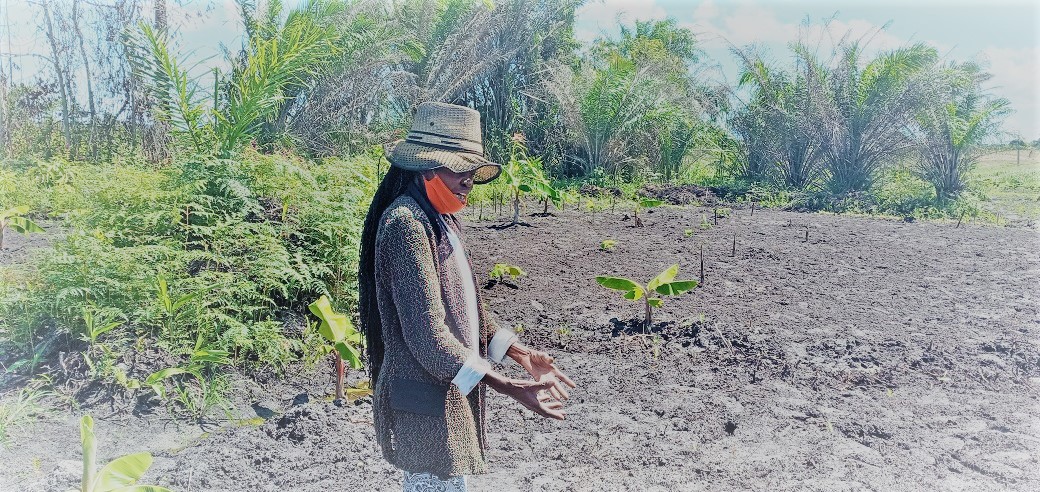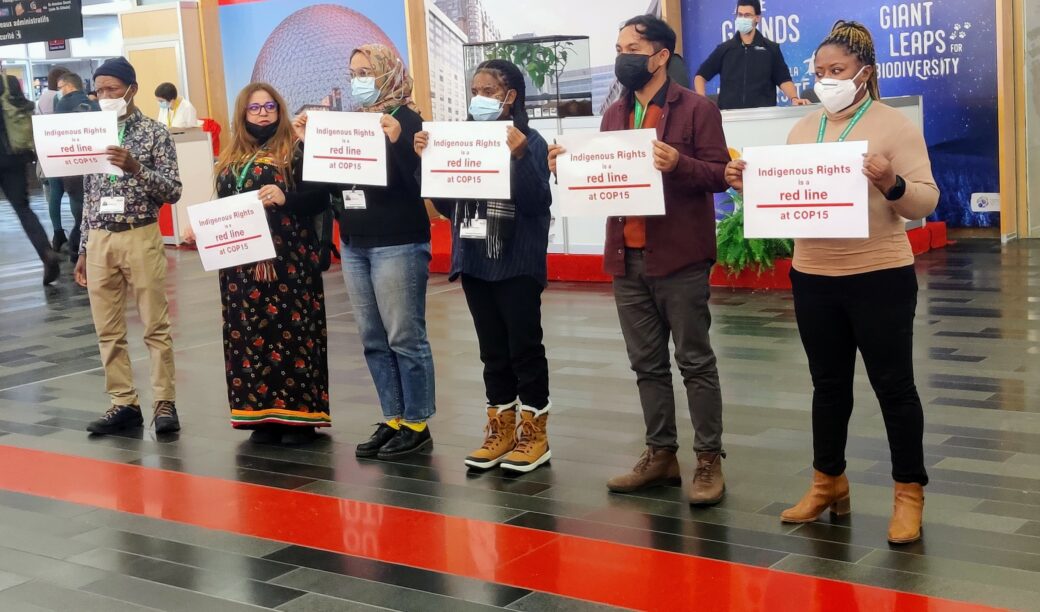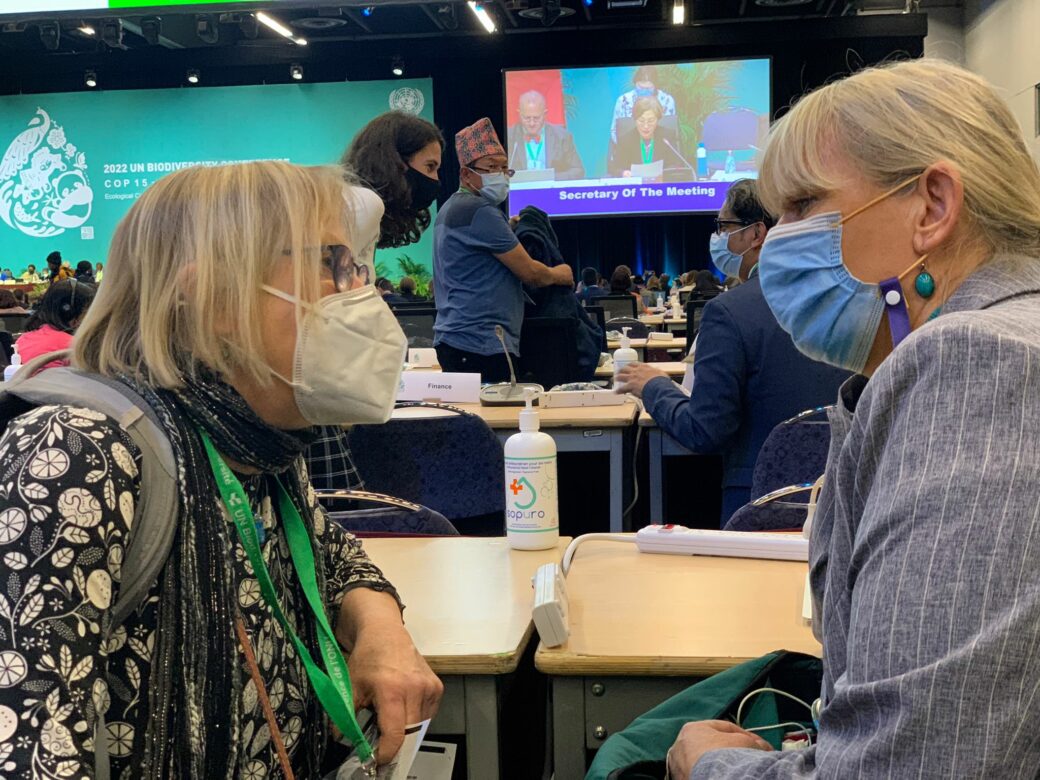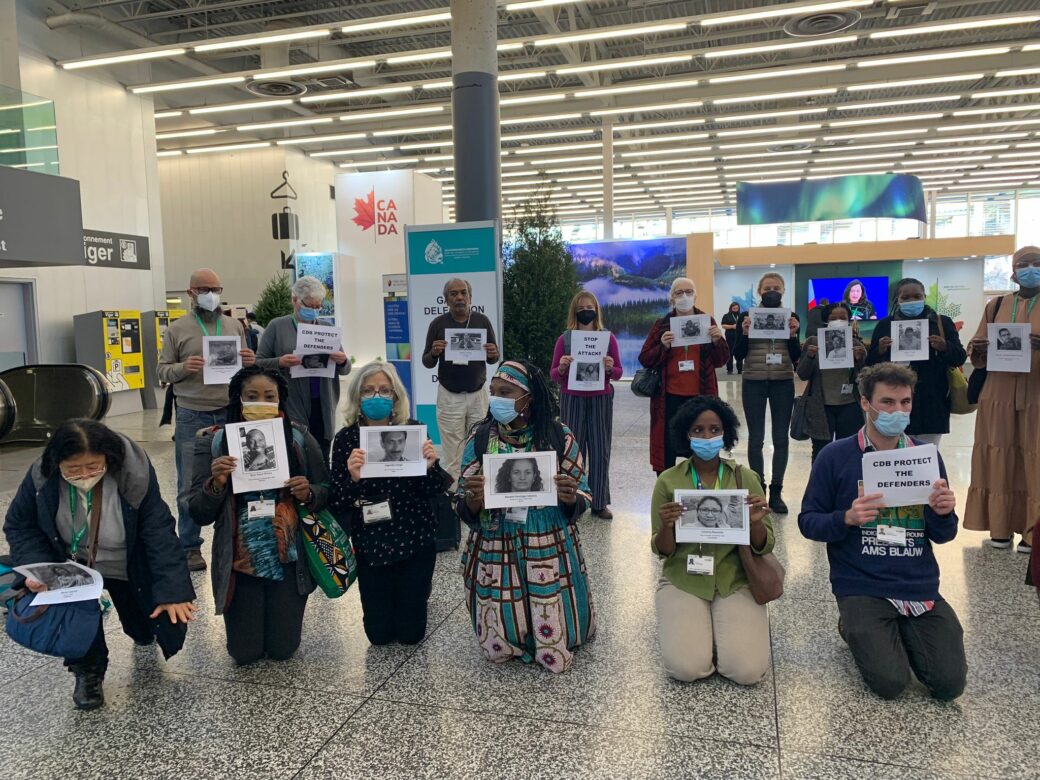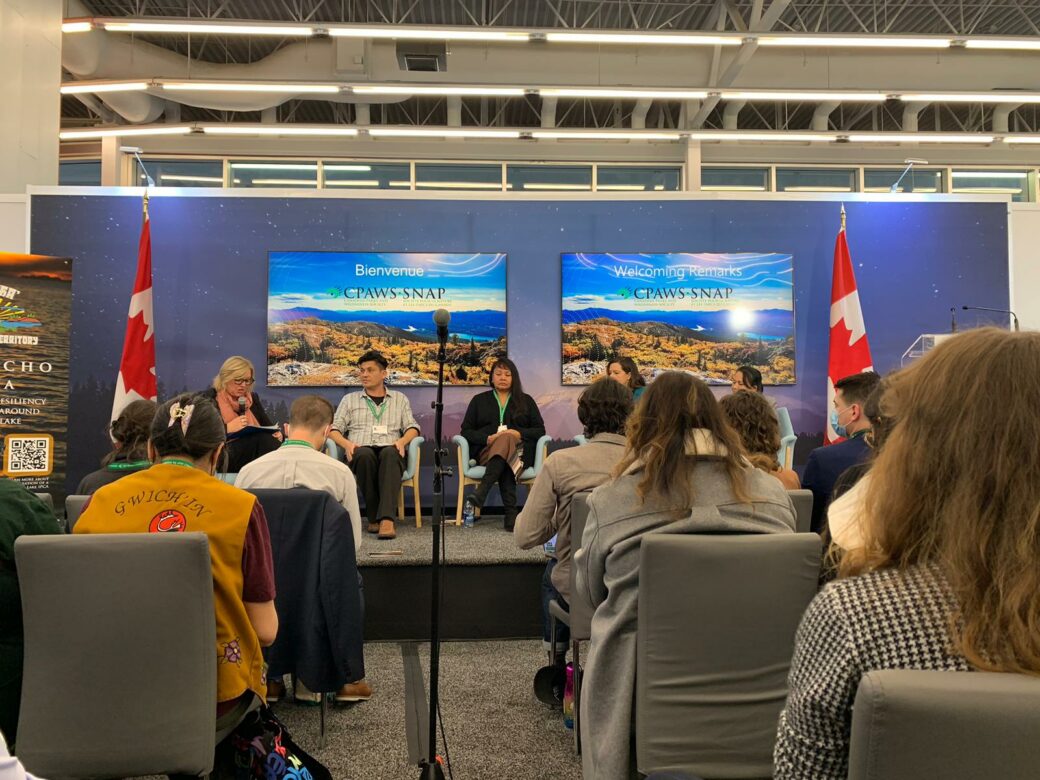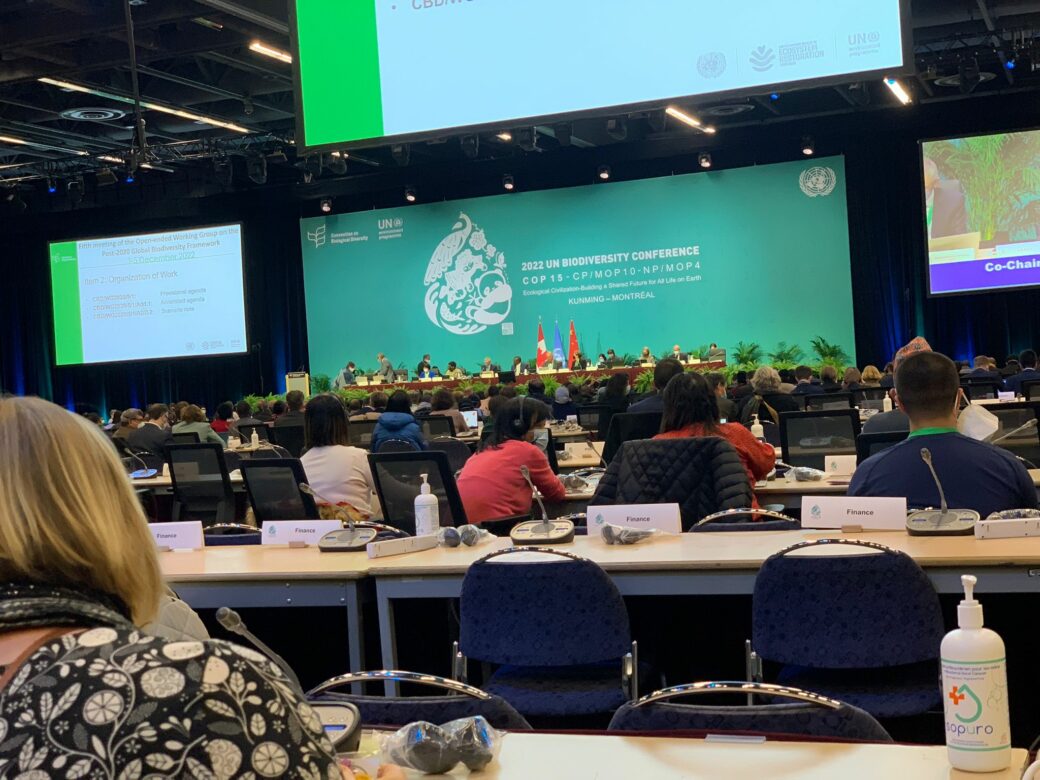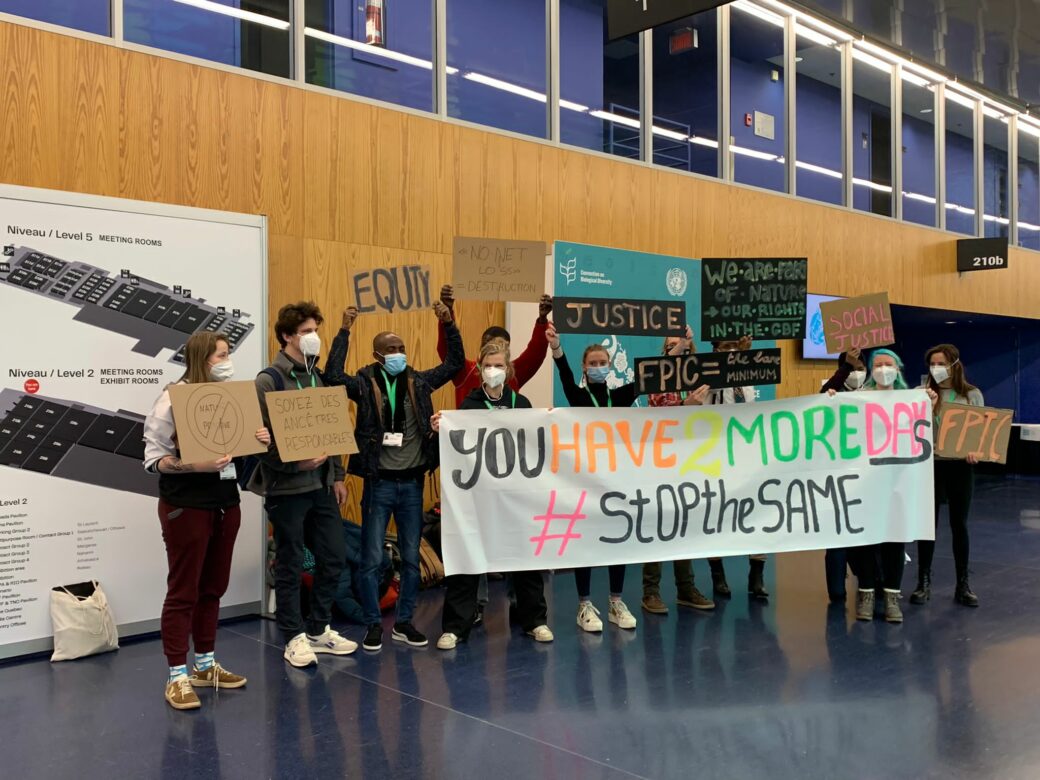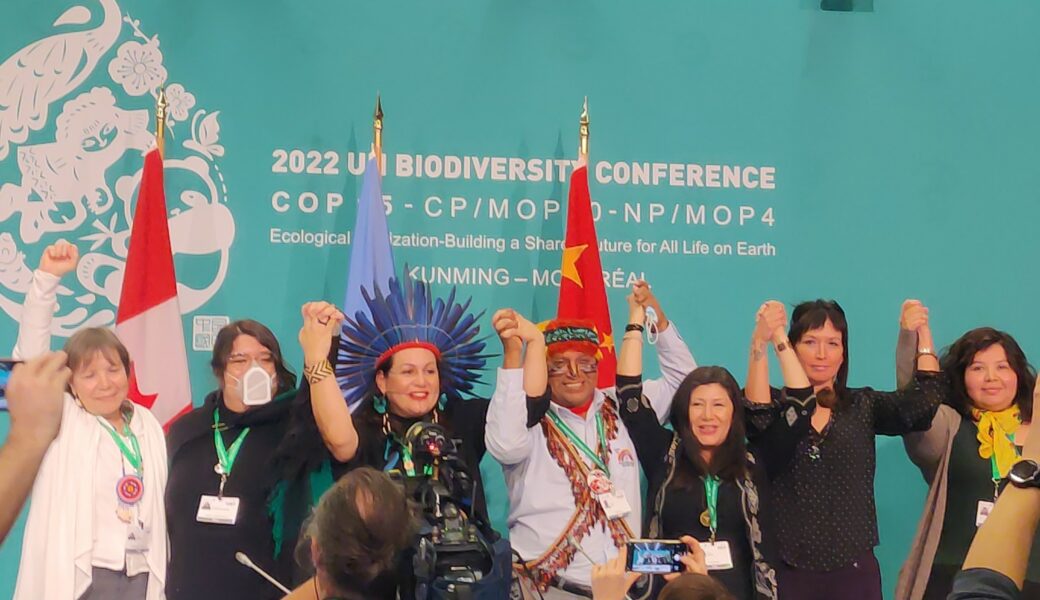Perspectives de la Coalition mondiale des forêts sur le nouveau cadre mondial pour la biodiversité
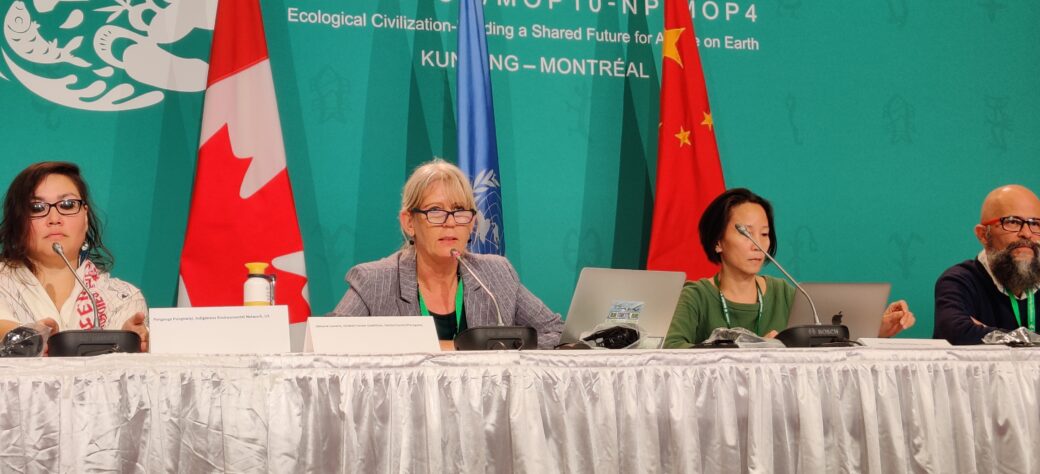
La directrice exécutive de la Coalition mondiale des forêts, Simone Lovera, a été interviewée par Inter-Press Service au sujet du nouveau cadre mondial pour la biodiversité.
M. Lovera a applaudi une partie de ce qui est inclus dans l’accord de dernière minute :
Il contient la reconnaissance des droits des peuples autochtones et des communautés locales, des femmes. Il est recommandé de retirer les subventions et les investissements publics et privés dans les activités destructrices, telles que l’élevage de bétail à grande échelle et les monocultures d’huile de palme.
Il a toutefois critiqué les conditions de leur mise en œuvre, déclarant :
Il y a peu de financement public. Il faut un financement public plus important. Il est triste qu’ils disent que le secteur privé devrait financer la biodiversité. Dans les territoires indigènes, vous avez besoin d’argent. Ils peuvent faire beaucoup plus avec moins d’argent que les gouvernements. Le soutien direct peut être plus efficace et ils tiendront leurs engagements.
M. Lovera a critiqué l’initiative de conservation « 30 pour 30 » et sa dépendance à l’égard des compensations :
Il s’agit d’un système qui permet de détruire 70 % de la planète tout en conservant les 30 % restants. C’est de la folie. Pour les peuples indigènes et les communautés locales, c’est très négatif, car ils perdent leur propre biodiversité et la compensation ne fonctionne pas pour eux, parce qu’elle se produit ailleurs.
Lisez la suite de l’IPS ici ou consultez le communiqué de presse du GFC sur les résultats de la COP15.
… continuer en anglais:
See more coverage of GFC’s perspectives on COP15.
From Mongabay:
with the significant presence of the private sector at the conference, business interests did largely influence negotiations and actively lobbied governments, say a group of delegates from the Friends of the Earth International, Rainforest Action Network, Global Forest Coalition, the corporate watchdog ETC Group, scientists from the Federation of German Scientists, along with some Indigenous, local and civil society activists.
From Bloomberg:
The Global Biodiversity Framework agreed in Montreal will guide policy and funding over the next decade, with “an important breakthrough” including the adoption of a target that calls on governments, industries and the finance sector to align their financial flows with the new framework, said Simone Lovera, policy director of the Global Forest Coalition. That means they’ll need to “divest from harmful activities. »
From Earth.org:
Speaking about Indigenous and local communities rights, Policy Director of the Global Forest Coalition (GFC) Simone Lovera, said: “We don’t need to protect the planet from people, but rather ensure people’s rights to protect the planet. We need a new biodiversity framework that truly incorporates and upholds human rights, including Indigenous, women’s, and land rights.”
From The Breach:
New sources of financing for conservation sounds positive on the surface, said Simone Lovera, executive director of Global Forest Coalition, one of the NGOs participating in the convention. But the emphasis on “leveraging private finance” set out in the framework transfers responsibility from governments to the private sector. “It will make biodiversity institutions dependent on private sector interests. It’s a perverse conflict of interest.”
From Reuters:
“If there is no finance, the developing countries are clearly saying that they don’t have the capacity to do what they are supposed to do,” said Souparna Lahiri, a climate policy advisor at green umbrella group the Global Forest Coalition.
Photos by Allie Constantine, GFC.

